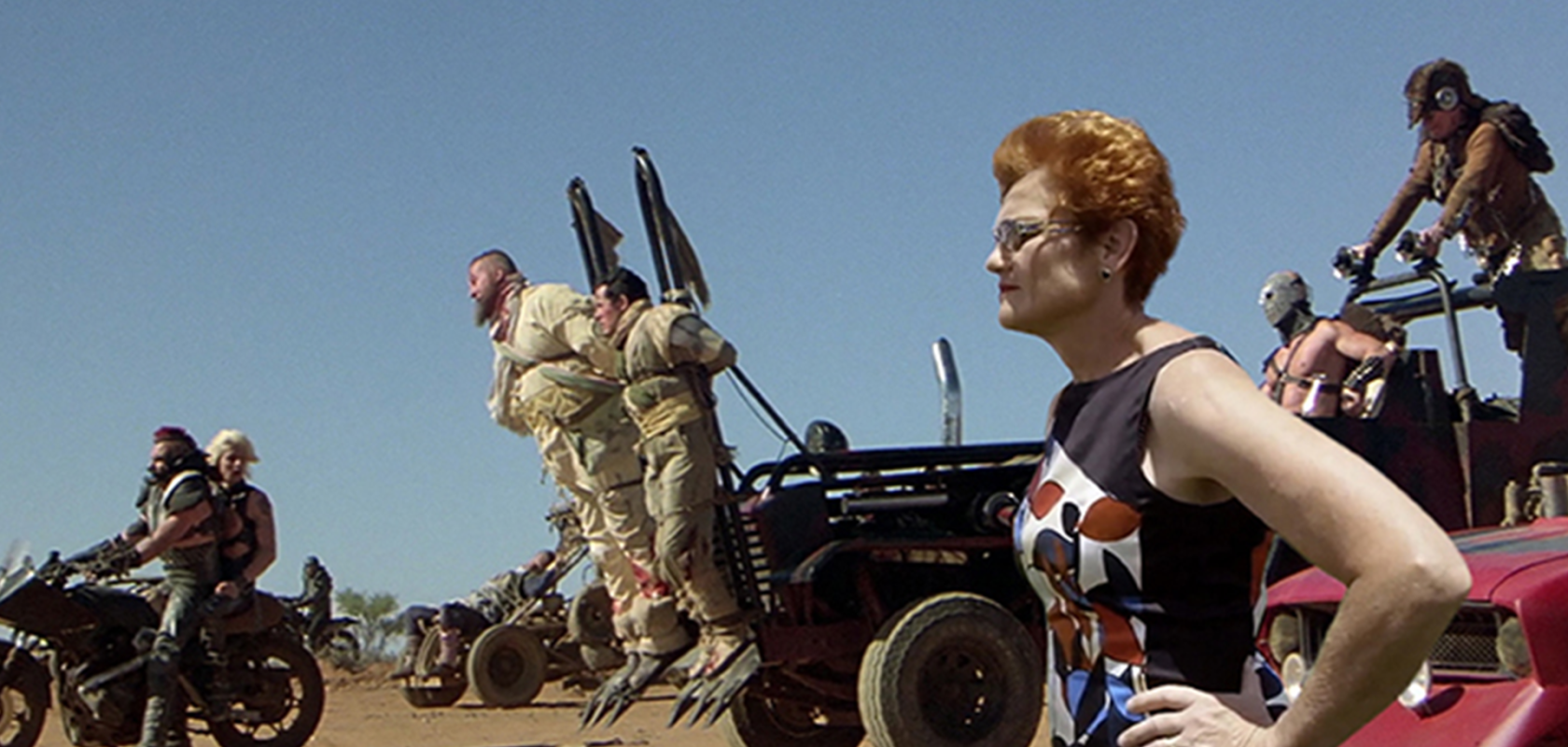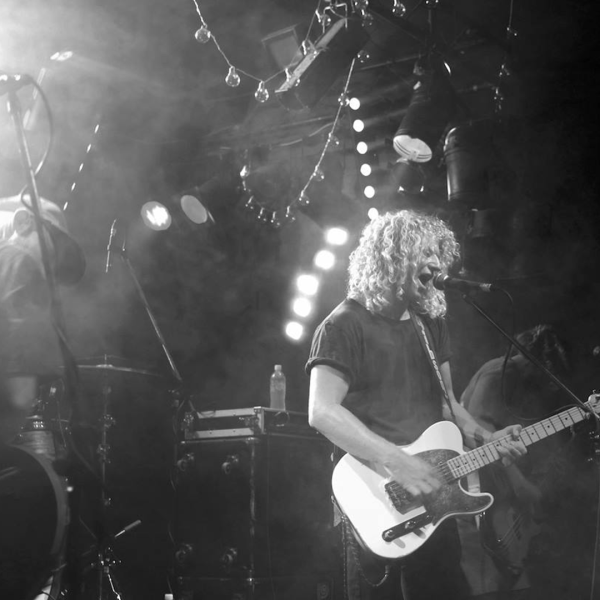A bold, clever and unashamedly political retelling of Australian culture.
On a rural highway in Australia we see Mad Max (Mel Gibson), sitting in his car. This image is instantly recognisable for Gibson in his trademark leather jacket and police car. George Miller’s iconic road-warrior did, after all, attain cult status and three sequels after this 1979 original.
In a disorientating and meta edit, we then see Charlize Theron’s Furiosa and Tom Hardy’s Max (from the most recent sequel, Mad Max: Fury Road). They stand in a desert, and listen to a tape of real-life Mel Gibson verbally abusing his ex-partner, and telling her that she “deserves to be raped”.
A reckoning begins. Furiosa leads an all-female biker gang, consisting of Nicole Kidman from BMX Bandits, the inmates from Wentworth prison and more, into battle. Iconic female characters from Australian culture line up to attack Max with vengeance and enthusiasm. Jane Turner’s Kath from Kath and Kim, Jessica Mauboy and Deborah Mailman from The Sapphires¸ and Toni Collette’s Muriel from Muriel’s Wedding, are just some of the many women who watch on with interest and delight. This fascinating, engrossing scene is one of many jarring montages which makes up TERROR NULLIUS a “political revenge fable which offers an un-writing of Australian national mythology”. This bold, clever and unashamedly political retelling of Australian history, that recently premiered at the Sydney Film Festival, is fifty minutes of jarring, biting and thought-provoking cinema. In this media art piece Soda Jerk the artistic partnership made up of sisters Dan and Dominique Angeloro, take iconic characters from Australia cinema and television, and twists and reframes these characters in a way that makes us rethink Australia as a culture.
The political themes that the film touches on are wide-reaching and hard-hitting. We have Charlize Theron leading an all-female biker gang into a feminist reckoning murder spree. We have Josh Thomas (from Please Like Me) chatting to the cast members of Priscilla, Queen of the Dessert, about Australia’s historical abuse of indigenous people. We have Queen Elizabeth hosting a garden party celebrating the bicentenary of European invasion… before the party is crashed by a heard of man-eating sheep, led by Babe the pig. We have asylum seekers drowning in the ocean while the girls from Puberty Blues watch on disinterested. We have the villain from Mad Max 2 with a Southern Cross tattoo, standing alongside Pauleen Hanson and other flag-bearing white supremacists, as he recites John Howard’s infamous election speech: “We will decide who comes to this country and the circumstances in which they come”. And, most entertainingly, we have The Babadook, re-edited to embrace its meme status as a queer icon.
In describing the controversy surrounding their highly political film, Soda_Jerk states: “If our film paints a less than perfect picture of Australia it’s because we think these dark political times absolutely call for it”.
What Soda_Jerk does here is genius. They take Australian film and television (the way we, as a culture, express ourselves) and they twist and reframe these iconic characters to make us think. They make us think, and rethink who we are as a country, and how we express that. Junkee writer Tom Clift sums it up in his review:
“TERROR NULLIUS is Australian cinema, but not as we know it. It is a patchwork polemic — a radical Frankenstein’s monster made up of iconic images and sounds that have been torn from their place in the national screen canon, and reappropriated for the merry, twisted, unapologetically political purpose of its creators.”
TERROR NULLIUS is essential viewing for anyone with an interest in Australian cinema. It asks the big questions about Australia’s cultural identity, and makes you think about how we, as a country, use art for self-expression. What is Australia? And who are Australians? TERROR NULLIUS overthrows what cinema history might have you believe. Australia isn’t just a smiling Crocodile Dundee in the outback, or the bikini clad white girls watching surfers in Puberty Blues. It’s a country, Soda_Jerk argues, which enables and promotes racism, sexism and misogyny, and we deserve to be called out on it.




